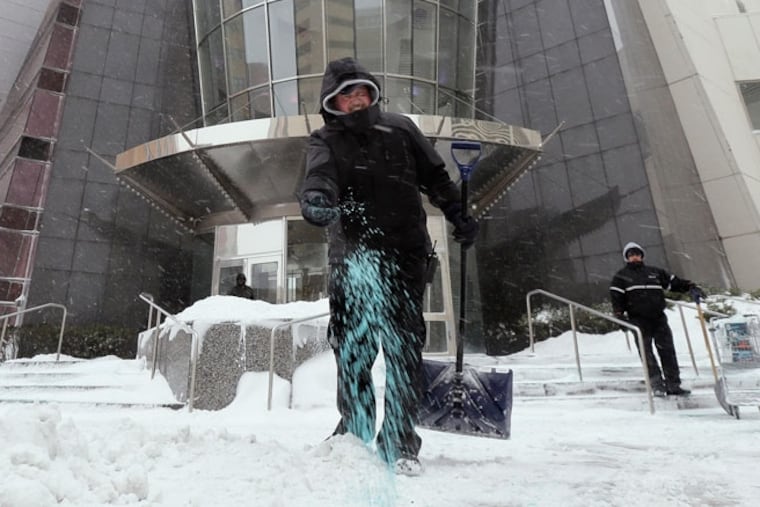Ice melting products can be dangerous
When the snow season comes, car owners and home owners buy ice melting products to protect their car and house from icing; these products include antifreeze, rock salts, lock de-icers or waterproof spray.

When the snow season comes, car owners and home owners buy ice melting products to protect their car and house from icing; these products include antifreeze, rock salts, lock de-icers or waterproof spray. Parents of young children or pet owners have to be extra cautious as many of these products contain poisonous substances which, if ingested, could potentially cause harm.
So the question is, what makes them so hazardous?
Antifreeze: Antifreeze or de-icing liquids prevent water from freezing on the windshield and make the scraping easier. Antifreeze is comprised of compounds that have lower freezing points like the toxic alcohol ethylene glycol. When ethylene glycol is ingested, it is converted to a toxic metabolite which causes damage to the kidneys and the brain. Antifreeze products are usually brightly colored which can be intriguing to a child and enhance the desire to drink.
Similar to ethylene glycol, methanol is a toxic alcohol which can be found in many antifreeze and de-icing products. Methanol can affect the central nervous system and cause seizures, coma, blindness and in severe cases methanol can be fatal. Even ingesting a small amount can be dangerous to children.
Rock Salts: There are various form of salts that are sprinkled on the road for melting ice. The most common salt is sodium chloride, and others include potassium chloride, calcium chloride, or magnesium chloride. One or two pebbles of these salts are unlikely to cause harm, but large amounts can cause significant tissue irritation. If children or pets come into contact with these salts, wash the exposed skin (or paws) immediately with a plenty of water and monitor for skin irritation.
Waterproof Spray: Fluorocarbon polymers or fluoropolymer are often found in waterproof sprays. When accidentally inhaled, this toxic substance can affect the lung and cause respiratory illness. Symptoms such as difficulty breathing, coughing, and/or chest pain can develop within minutes to hours of exposure. Children who are exposed to fluorocarbon polymer should seek medical help immediately.
Tips for safety!
Keep ice melting products out of sight and out of reach for children
Always keep them in the original containers
Be aware of the ingredients! Take a look the ingredient list on the back of the de-icing products
Clean shoes/boots before entering the house
If a child accidentally ingested ice melting products, even if it’s a small amount, get immediate help. Call the Poison Control Center at 1-800-222-1222
If you have any questions or concerns, the Poison Control Center is available 24/7. Use the online tool at https://www.poison.org/, or simply call 1-800-222-1222 to speak to an expert.
Joyce Jung, PharmD Candidate from Philadelphia College of Pharmacy, University of the Sciences, wrote this in conjunction with the Poison Control Center at Children’s Hospital of Philadelphia